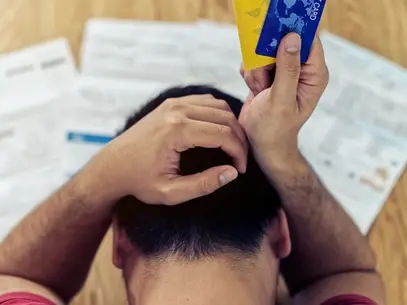
Is there any way to avoid bankruptcy?
Debts up to the neck, impossible to pay everything, constant calls from debt collectors, tension, stress and even frayed nerves. To do? Is bankruptcy the only option? There is some other way out of financial problems and we are going to see that this week.
Bankruptcy offers some people a clean slate, but it is by no means an easy solution. Bankruptcy will destroy your credit and may possibly force you to sell your assets. You will be much better off if you do everything you can to avoid bankruptcy. It can also affect your future employment. Although it is not easy, it is worth the effort. Here we give you the advice:
Where to start? Only once you have a true picture of your debt can you take the following steps to avoid bankruptcy. Gather every invoice, every statement and every document that has an effect on your financial situation.
Add up your debts and your assets. Include your mortgage as a debt and the value of your home as an asset. Now break down those debts into good and bad categories.
Good debts are home loans and student loans. Bad debts include credit card debt, personal loans, high rate auto loans and medical expenses. You should also list the interest rates and minimum payments for all your debts. (Remember: start cutting expenses.)
Now add up all your expenses, everything you spend. Even the $1 you spend at the office vending machine should be included.
Divide these two figures into necessary and unnecessary. Necessities are items you need to survive, such as food and shelter. The unnecessary ones are nice things to have, but that you don't need, like that candy from the vending machine.
Add up the minimum payments on your debts and the monthly cost of necessities. This is the minimum amount you need to cover your bills for the month. If you don't earn enough to cover them, then you need to find a way to reduce payments on your debts or needs. Even small steps like switching from name brands to generic brands and canceling the cable can help.
Consolidate debt. By consolidating debt, you not only reduce the total number of bills and the minimum payments you owe, but you also lower your interest rate. So you can reduce your debt faster. Contact a reputable credit counselor if you need help adding up your debts, finding ways to reduce expenses, or consolidating debt.
In addition to teaching you how to manage money, they can help you qualify for a consolidation loan, either in the form of a mortgage loan or a personal loan.
-2.png?width=200&height=62&name=debtfreedom-usa.comhubfsRed%20And%20Blue%20PNG%20Version-1%20(2)-2.png)
 Juan Carlos Guilbe
Juan Carlos Guilbe


